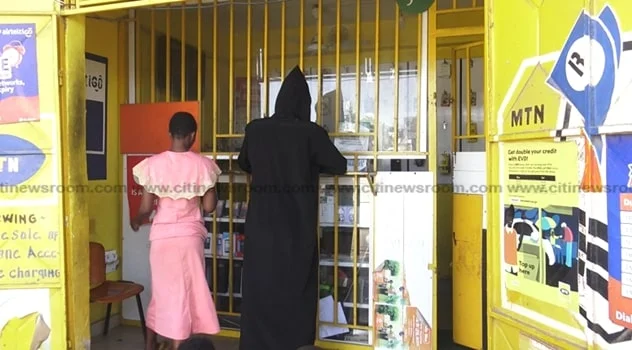On May 1, 2022, mobile money (MoMo) agents in Ghana faced severe cash shortages due to panic withdrawals triggered by the implementation of the Electronic Transfer Levy (E-Levy), per. The 1.5% tax on electronic transactions, enacted under the Electronic Transfer Levy Act, 2022 (Act 1075), led to a rush of customers withdrawing funds from their MoMo wallets, leaving agents idle. Visits by Citi News to Nima and Accra Newtown in the Greater Accra Region confirmed that agents struggled to meet withdrawal demands due to insufficient cash reserves, per.
Agents’ Struggles with Cash Availability
MoMo agent Felicia Asiamah explained the situation: “Because we withdrew the money from the bank on Friday, we don’t have cash for MoMo withdrawals now. We are able to withdraw the smaller amounts… but we can’t withdraw GH¢5,000 for instance for one person,” per. She noted that, unlike typical days when deposits balanced withdrawals, the surge in withdrawals on May 1 left her without cash by 10 a.m. Another agent, Ramatu Adam, highlighted banking constraints: “Banks will open on Wednesday because of the holidays, so we have no choice but to withdraw cash via the ATM machine. But the ATM charges are outrageous,” per. Adam cited high ATM fees, such as GH¢53 for withdrawing GH¢4,000, which eroded profits, making large withdrawals unfeasible.
Impact of E-Levy Implementation
The E-Levy, implemented in phases by the Ghana Revenue Authority (GRA) starting May 1, 2022, followed its passage on March 29 and Presidential Assent on March 31, per. Banks and mobile networks, including MTN and AirtelTigo, sent messages on April 30 reminding customers of the levy’s start, prompting the “mad rush” to withdraw funds, per. The levy applies to electronic transfers exceeding GH¢100 daily, excluding deposits, withdrawals, and certain merchant transactions. Industry players warned that the tax could undermine Ghana’s digitization agenda, as mobile money transactions were a cornerstone of financial inclusion, per.
Agents Blame Low Sensitization
Agents attributed the panic to insufficient public education by the government and telecom companies. “These agents… attributed the panic withdrawals to the low level of sensitization,” per. The lack of clear communication led to fears that funds in MoMo wallets would be taxed, driving customers to empty their accounts. This was evident in comments like Adam’s, who noted customers demanded large sums like GH¢4,000, which agents couldn’t service profitably due to high bank charges, per. The Mobile Money Agents Association of Ghana had urged members to educate the public to restore confidence, but the initial rollout saw widespread confusion.
Economic and Operational Challenges
The cash shortage highlighted operational challenges for MoMo agents, who rely on balanced deposits and withdrawals to maintain liquidity. With banks closed for holidays until May 4, agents resorted to costly ATM withdrawals, eroding their margins. “If I should withdraw GH¢4,000 for a customer and gain a GH¢4 profit, and I pay GH¢53 as ATM charge, I would only run at a loss,” Adam lamented, calling for government intervention, per. The E-Levy’s introduction risked reducing mobile money usage, critical in Ghana, where 40% of the population used such platforms in 2022, per Bank of Ghana estimates.
Broader Implications for Agents
The panic withdrawals strained the mobile money ecosystem, which supports millions of daily transactions in Ghana. Agents faced not only cash shortages but also potential business losses if customers shifted to cash transactions to avoid the levy. The Association’s earlier statement on May 1 emphasized sustaining the business, urging agents to comply and avoid overburdening customers, per. As the GRA rolled out the levy in phases, agents and customers awaited clearer guidelines to stabilize operations and rebuild trust in digital payments amidst the economic pressures of 2022.






